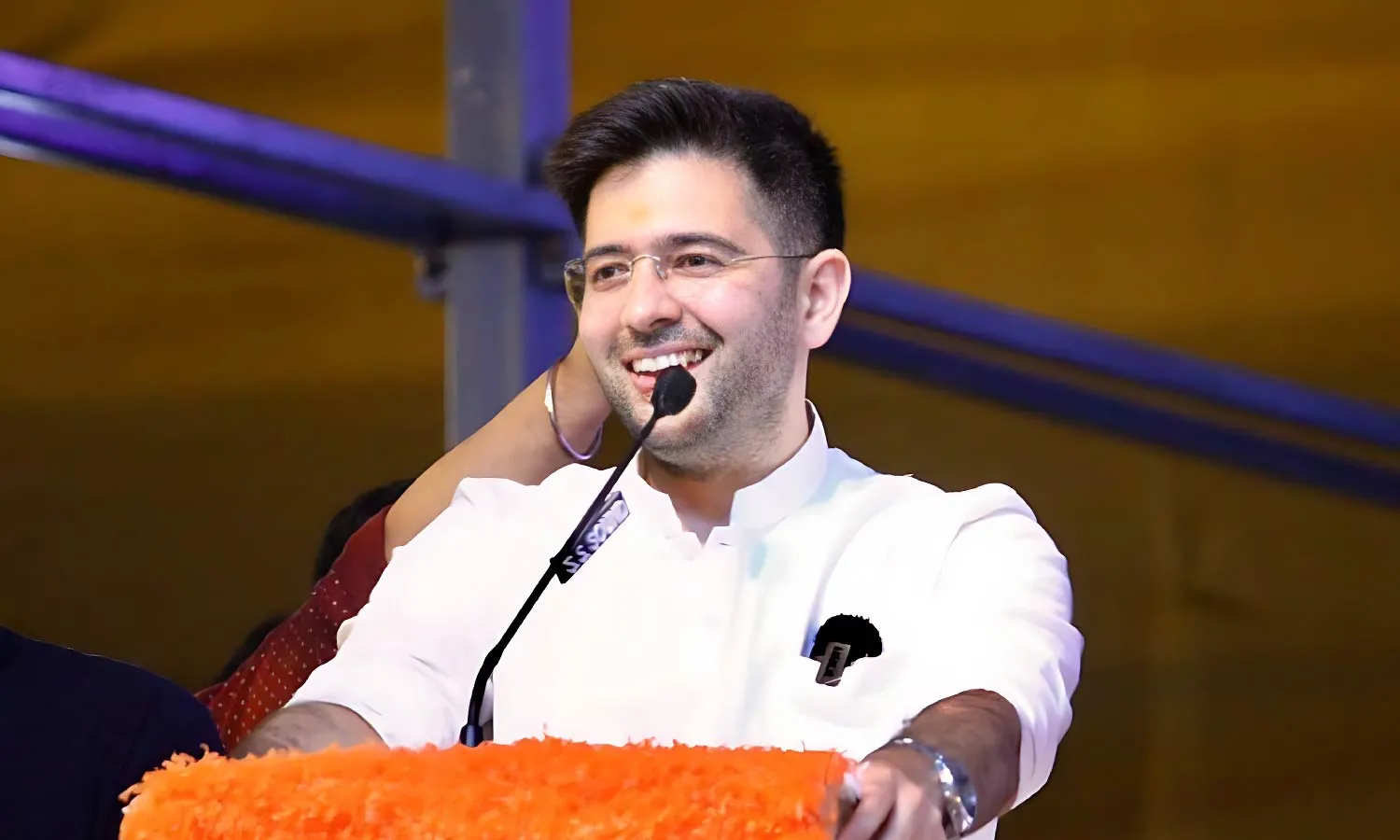AAP MP Raghav Chadha To Tender Unconditional Apology, Supreme Court Asks Rajya Sabha Chairperson To Consider It ‘Sympathetically’
The Supreme Court today while noting that AAP MP Raghav Chadha is willing to place an unconditional apology before the Rajya Sabha Chairperson, has also urged the Hon'ble Chairperson to consider his apology ‘sympathetically’ keeping in view of the fact that he is a young member of the House.
Chadha was suspended from the Rajya Sabha on August 11, 2023 for an indefinite period for including names of some members of the Upper House without obtaining their consent in a proposed select committee for the Government of National Capital Territory of Delhi (Amendment) Bill, 2023. While the Court had earlier remarked that the doctrine of proportionality should have been kept in mind while suspending a member of the opposition from the Parliament. The Court had also referred to the issue as a ‘serious matter’.
Therefore, after noting the submissions of the counsel representing Chadha, a bench led by Chief Justice of India D.Y. Chandrachud observed, “…he is a first time member of the Rajya Sabha and the youngest member, and bearing in mind that he had no intention to affect the dignity of the house, the petitioner would seek an appointment with the Chairperson to place an unconditional apology which may be considered sympathetically having due regard to the facts and circumstances”. The bench also comprising Justice J.B. Pardiwala and Justice Manoj Misra have now listed the matter after Diwali.
Senior Advocate Rakesh Dwivedi along with Advocate Shadan Farsat appeared for the petitioner.
At the outset, CJI in continuance of the previous discussion on October 30, 2023 and suggesting a ‘way forward’, said, “Last time we had proposed that if the petitioner is willing to tender an apology, the Hon’ble Chairman who is a distinguished person and a senior constitutional functionary, can perhaps take an objective view”.
Pursuant to which, CJI turned towards Farsat to know if Chadha was willing to seek an appointment with the Chairperson, to meet him and then tender an apology.
“He is the youngest member in the house of elders. He certainly will find no difficulty at all”, submitted Farsat while expressing his strong willingness.
“If he apologizes then certainly some modalities can be worked out”, said CJI.
For the background, Chadha, who is a Member of the Rajya Sabha under Article 32 of the Constitution had challenged his suspension pending an enquiry by the Privileges Committee of the House.
The provisions of Rules 256 and 266 of the Rules of Procedure and Conduct of Business in the Council of States (Rajya Sabha) were invoked to suspend him. Therefore, the petitioner had formulated the following issues before the Court on October 16, 2023:
- (i)Whether by an admixture of a resolution of the House and an order of the Chairperson under Rules 256 and 266, there is any jurisdiction to suspend a Member of Parliament pending an enquiry;
- (ii)Whether such an order could be passed after the matter was referred to the Committee on Privileges based on the same grounds for examination, investigation and report;
- (iii) Whether Rules 256 and 266 empower the Chairperson of the Rajya Sabha to pass an order of suspension pending an enquiry;
- (iv) Assuming that Rule 72 was breached by the petitioner by not ascertaining the consent of the Members of the House who were proposed to be nominated to the Select Committee, whether this would amount to a breach of privilege of the House or of the Members of Parliament since the Members had indicated their unwillingness before the motion was taken up following which the Bill was passed and the motion was defeated;
- (v) Whether a Member of Parliament can be suspended pending enquiry for such a breach and whether the suspension would pass the test of proportionality in relation to Article 14 of the Constitution;
- (vi) Whether in view of Rule 297, such an order, if passed, would be in breach of the Rules; and
- (vii)Whether the freedom of speech within Parliament which is protected by Article 105(1) and freedom of speech outside the Parliament which is protected by Article 19(1)(a) encompasses the presentation of the views of a Member of Parliament within and outside the precincts of the House.
Therefore the petitioner argued that Rule 256 at the highest, would empower the suspension of a Member only until the end of the session and not beyond, and would be attracted in respect of conduct amounting to disregarding the authority of the Chair or abusing the rules of the Council by persistently and willfully obstructing the business. It was further contended that the residuary powers of the Chairperson cannot be availed of to suspend a Member beyond the period prescribed in Rule 256. Lastly, that the tenure or period of suspension which is provided in Rule 256(2) cannot be extended either under that provision or in exercise of the residuary powers.
Cause Title: Raghav Chadha v. Rajya Sabha Secretariat



